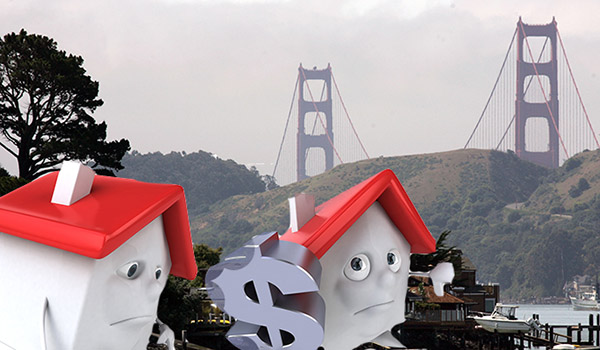
(Getty Images, Remax)
California’s Senate approved Senate Bill 2 on Friday in the eleventh hour of the legislative session. If Gov. Jerry Brown signs it — which he has indicated he will — most mortgage refinancings and a plethora of other real estate transactions in California will be hit with a new $75 to $225 fee. The new tax is expected to generate a permanent stream of $250 million per year to help pay for the development of affordable housing.
The real estate industry has mixed feelings about the legislation, which is part of a larger package of bills that the governor said will “help ensure Californians won’t have to pay an arm and a leg to have a roof over their head.”
The California Association of Realtors (CAR) cheered its presumed passage, and commended Legislators for working to provide more residential development.
“We must always recognize that until people have the ability and opportunity to buy or rent a home in California, our work is not done,” said Geoff McIntosh, the association’s president. “Homeownership is the vehicle for individual prosperity that can help the state fulfill its economic potential.”
But some groups are worried the added $75 fee is another unnecessary tax that will punish the real estate industry. The Building Owners and Managers Association of Greater Los Angeles (BOMA-GLA) – which represents owners, managers, developers, leasing professionals and asset managers – called the fee an “outrageous tax increase” that will increase the cost of lot line adjustment filings sevenfold, from around $36 to $261.
“Our industry remains opposed to the new taxes contained in SB-2 as the bill is a regressive measure that inserts a convoluted tax into the middle of day-to-day real estate business and does very little to directly produce affordable housing,” BOMA-GLA said in a statement.
Others in the industry don’t think it will make much of an impact.
A $75 tax will slow the volume of refinancing activity – but not by a lot, said Alyson Austin of real estate research firm CoreLogic. New York and Florida have a fee on mortgage recordation, and the mortgage payment speeds are only “a little slower in those states,” she said.
Cody Coffman, a Los Angeles-based Redfin agent who works in the high-end market, said the new tax isn’t something his clients will “bat an eye at.”
“It’s not going to be a huge deal,” Coffman said. “In general, it’s not going to affect transactions. There are a lot of fees generally involved in real estate transactions as it is. This won’t be anything that will make or break a deal.”
Coffman said it will be worth it to add housing supply to the market.
“We need more low-income housing because we don’t have enough,” he said.
Senator Toni Atkins (D-San Diego), who authored SB-2 to create the fee, said the state falls an additional 100,000 homes behind what is needed for California to stabilize housing costs each year. The dwindling supply has caused prices to surge, hurting potential homeowners and renters.
According to the Public Policy Institute of California, 31 percent of mortgaged homeowners and 46 percent of renters spend more than 35 percent of their income on housing. In August, CAR reported that only 29 percent of California households can afford to purchase a $553,260 median-priced home.